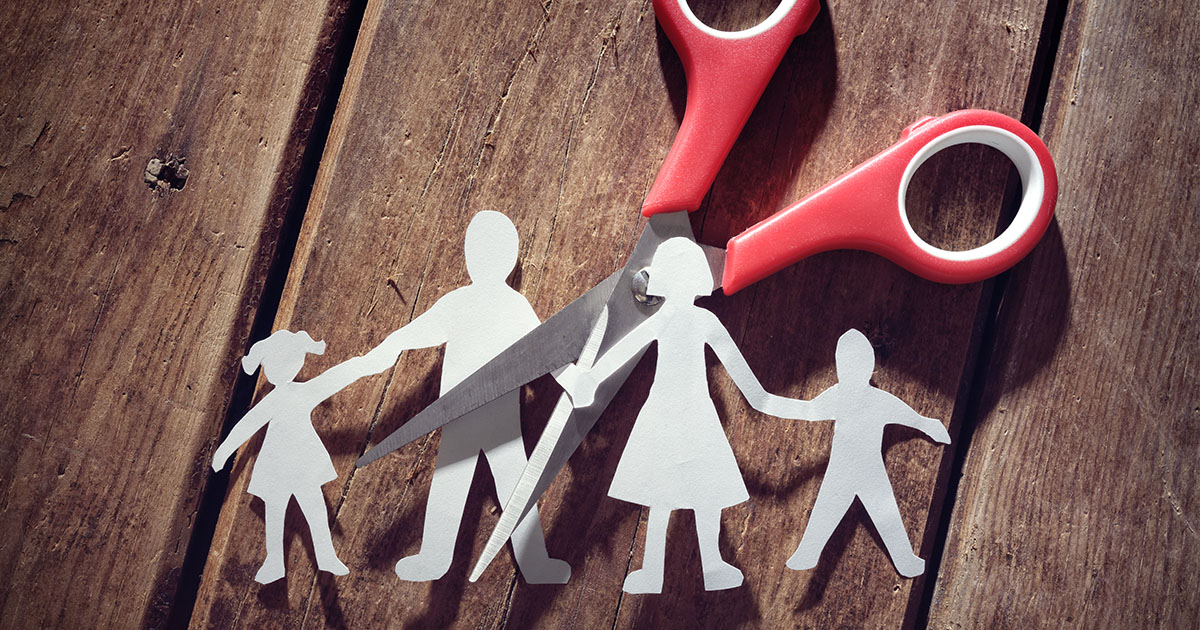We live in a culture that values family and the idea of a family unit. We grow up with a predetermined belief that marriage is a necessary part of life and that it is a bond that should last forever. With an alarmingly rising rate of divorce, our society is slowly accepting a new definition of a “family unit”. Even though we seem to be breaking away from divorce being a cultural taboo, we find ourselves facing objections, and sometimes extreme opposition when we decide to separate from a spouse. We start feeling a certain sense of guilt and it gets fueled even more when all those involved start asking “what about the children?”
The guilt we feel towards our children when we decide to separate is associated with the idea that they don’t have a voice. We are making a decision on their behalf without knowing the extent of the impact it will have on their lives. We then start making assumptions and speculations, about the different ways the kids will be affected, and all stemming from the embedded image society has created for us over the years. When looking into how our children’s lives are affected, we need to strip away emotions and see the situation objectively. Acknowledge your emotions, don’t allow them to cloud your decision making process.
“We then start making assumptions and speculations, about the different ways the kids will be affected, and all stemming from the embedded image society has created for us over the years.”
The bigger concern we have and what makes up most of the reasons behind the guilt is the mental and emotional wellbeing of our little ones. We get consumed by the idea of them growing up with negative emotional baggage. We keep thinking that our kids will have “issues” when it comes to future relationships. If you delve a little deeper into this topic of carrying baggage into adulthood, you will reach the conclusion that we all carry with us the consequences of our parents’ choices and decisions.We are not capable of sheltering them from the tribulations of life but we can most certainly do our best in creating a positive environment in which they can thrive.
We also need to consider the impact left by our current situation, examine the effects your marriage will have on the children. Ask yourself about what you want your kids to learn about love. Explore your own definitions of strength, partnership, compromise, and sacrifice; are you setting the example you would want them to follow? Remove the guilt by looking at your relationship from an emotionally detached angle. Be pragmatic and realistic, but be aware of your own emotional state, as your children will feed off your energy.
“Children are resilient and much more flexible to change than adults. Do not underestimate their ability to adapt and adjust.”
Another source of guilt is the sense of failure associated with not having been able to maintain the stability of the family unit. We live in a society that attaches the word failure to divorce, and this is where the guilt stems. Failure is a matter of perspective. We can refer to “failing” as receiving feedback from life. When we make the decision to marry, we assume it’s forever; no one ever plans for a divorce, yet we sometimes find ourselves faced with it. Growing apart from each other is always a possibility and should not be seen as failing, it should be seen for what it is; two people who have evolved in different directions.
Children are resilient and much more flexible to change than adults. Do not underestimate their ability to adapt and adjust. Talk to them and answer their questions. Set yourself free from the assumptions you make about what the future holds, for none of us know what life has in store.
Alia Nasr is a practicing Neuro-Linguistic Programming (NLP), Hypnosis, and Time-Line Therapy Practitioner. Through the tools of NLP, Alia works on coaching individuals in adapting to and creating change during and post the divorce process.

